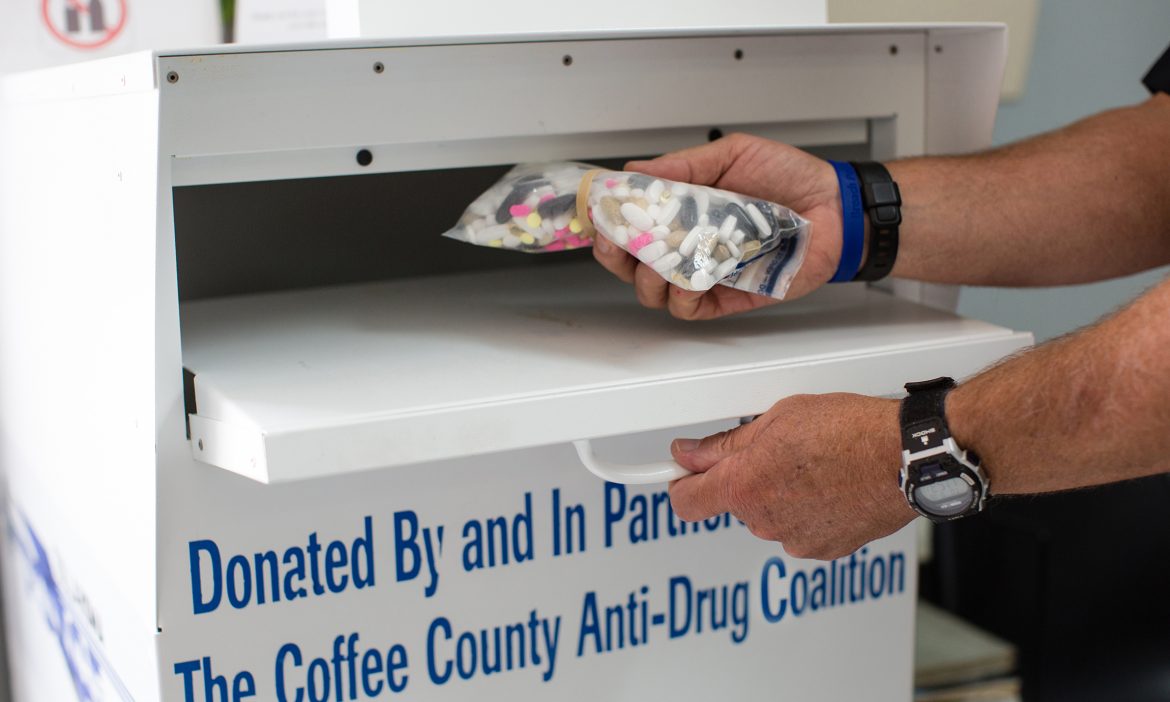Key Takeaways
- In 2017, our changes resulted in 194,000 fewer prescriptions filled, the equivalent of 12 million pills.
- Responsibly reducing supply shouldn’t be controversial, as research shows 55 percent of recreational users got their pills from a friend or relative.
- The BlueCross BlueShield of Tennessee Health Foundation has awarded $4.6 million to support community programs fighting opioid absue.
Originally published in The Tennessean, February 2018
Tennessee’s opioid crisis is nearly unprecedented – but unfortunately, it isn’t new. We saw it on the horizon in the upper east region of the state years ago, where an increasing number of babies were being born dependent on prescription pain medication.
We knew we had to take action, and we did.
Starting in 2013, BlueCross BlueShield of Tennessee and our Health Foundation began supporting the efforts of community partners like Dayspring Family Health Center and East Tennessee Children’s Hospital to combat the effects of neonatal abstinence syndrome (NAS).
What we didn’t initially realize was how widespread Tennessee’s opioid epidemic would become, affecting people across every type of health status and demographic line.
It’s clear now that anyone exposed to opioids has the potential to become addicted.Tennessee now ranks among the top three states in the country for opioids prescribed per resident. In 2016, more of our residents died of drug overdose than roadway fatalities.
As a health plan serving 3.4 million members, we also know that many people in our state are struggling with short-term or chronic pain management needs. We have a duty to balance access to appropriate care with a need to mitigate the crisis of misuse and abuse.
So we committed to focusing on the problem for what it is – a true epidemic – and we began tackling it from a number of perspectives.
One was a concentrated effort to reduce the number of opioid prescriptions being written, through prior authorization requirements and new quantity limits. In 2017, our changes resulted in 194,000 fewer prescriptions filled, the equivalent of 12 million pills, representing a 6 percent decrease in the number of opioid prescriptions per member, per month.
We understand many people need pain relief, but overprescribing and extended periods of use both increase the risk of addiction. We will continue to focus our efforts on ensuring that providers are starting and continuing with the right doses, and are considering alternate medications and treatments.
Responsibly reducing supply shouldn’t be controversial.
Almost everyone knows someone who’s gotten a major supply of pills after a minor medical or dental procedure. And research shows 55 percent of recreational users got their pills from a friend or relative.
To that end, we’ve also supported a statewide education initiative, Count it! Lock it! Drop it! (CLD), which offers residents a simple formula for reducing that same risk. By counting their pills regularly, locking them up securely and dropping off any unused medications, every patient has a chance to make a dent in Tennessee’s opioid crisis.

In partnership with CLD, we heavily promoted National Prescription Drug Take-Back Day last fall, and Tennesseans responded by dropping off a record 68,053 pounds of unused or expired medications.
Over two years, the BlueCross BlueShield of Tennessee Health Foundation has awarded $2.6 million in support of Count it! Lock it! Drop it! And since 2013, we’ve given another $2 million to support addiction treatment programs statewide.
Our team also works with members to provide integrated medical and behavioral health care support, along with specialized services for expectant mothers who’ve become dependent on opioids.
We’re working closely with physicians as well. That means sharing best practices and consultation, along with sending data-driven scorecards that evaluate their prescribing patterns relative to peers and notifications about patients who are at high risk for potential abuse.
So while the opioid crisis is receiving more attention than ever before, collaborative solutions have been taking shape for some time. We all have a role to play, and we at BlueCross look forward to working with community and government partners to see progress continue.


 Dr. Tate oversees all aspects of the pharmacy management program and provides strategic direction for our teams charged with helping BlueCross members improve their health outcomes.
Dr. Tate oversees all aspects of the pharmacy management program and provides strategic direction for our teams charged with helping BlueCross members improve their health outcomes.